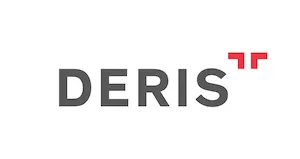Legal framework
Turkey is a party to a number of international conventions, including the Paris Convention and the Agreement on Trade-Related Aspects of Intellectual Property Rights, as well as having national legislation such as:
- the Industrial Property Code 6769;
- Law 5846 on Turkish Intellectual and Artistic Works Law;
- the Code of Commerce;
- the Customs Law;
- the Anti-smuggling Law; and
- Law 5651 on Regulating Broadcasting in the Internet and Fighting Against Crimes Committed through Internet Broadcasting.
Border measures
According to Turkish legislation, it is possible to register IP rights (ie, trademarks, industrial designs, patents, utility models, copyrights, geographical indications, integrated circuit topographies and plant breeders' rights) before Customs, as the crucial first step in the fight against counterfeiting.
The IP rights registration procedure before Customs is as follows:
- Rights holders may register their IP rights via an online central application filed before the Turkish Customs Ministry, which has effect over all Turkish borders and customs authorities.
- Customs monitors import and export transactions, as well as the transit of goods and free trade zones.
- Applications are issued and registered within a one to two-month period.
- No official fees are required for filing such applications.
- If Customs determines any lack of documentation in the application, the rights holders or representatives will be told to complete the missing documents within a reasonable time. Accordingly, if the documents are corrected within the time provided, an official notification regarding the acceptance of the recordal will be served by Customs in approximately 20 to 30 days.
- Customs provides up to one year of protection from the application date for the recorded rights. The registration can be renewed periodically and will always provide a one-year period of protection.
- The following items are required for the records:
-
- documents evidencing that the applicant is the real rights holder (eg, the IP rights registration certificate);
- a power of attorney notarised and legalised (by apostille) if the application is filed via a legal representative; and
- a signatory circular evidencing the authorisation of the applicant if the application is filed in the name of a legal entity.
- Although the following information is not mandatory to complete an application, it is crucial for the protection process:
-
- information regarding the genuine products and their distinguishing features; the country or countries where the genuine products are manufactured;
- the suspected differences between the genuine and infringing products and any other information on the infringing product;
- the itinerary of the genuine products; the Harmonised System Codes of the genuine products (these codes consist of
- international codes defining the products for international trade); and
- the details of the local legitimate dealer, importer or licensees.
- If the suspicious goods carry a mark indicating registration by Turkish Customs, rights holders will have 10 working days to examine the goods and commence legal procedures. It is possible to request from Customs a time extension for an additional 10 working days if a solid reason for doing so is provided; however; the decision is ultimately at Customs' discretion.
- Customs frequently acts ex officio and notifies the trademark attorneys and trademark owners of suspicious third- party activity, even if the trademark is not registered with Customs. In such cases, Customs provides rights holders with three working days within which to complete all procedures (ie, examine the products and take action or register their trademark rights before Customs to receive an additional 10 days of seizure).
- In case the products are counterfeit, a complaint can be filed before the public prosecutor to commence criminal proceedings or a preliminary injunction can be requested from the civil IP courts for civil proceedings, otherwise Customs will release the suspected goods.
- In the event that both parties agree to the destruction of the seized goods by customs officers by filing a petition within 3 or 10 days of the seizure of the goods, a simple destruction procedure can be applied without a court order.
Criminal prosecution
Criminal provisions are regulated for registered trademark rights, whereas design and patent infringement is not regulated as a criminal offence.
The procedure for filing a criminal complaint is as follows:
- The criminal route is generally used for counterfeit products where the trademarks are identical and there is no room to evaluate similarity and confusion.
- Trademark infringement is an offence prosecuted based on a complaint. Rights holders must file a criminal complaint before the relevant public prosecutor.
- Search and seizure warrants are issued only by a criminal judge. According to the search and seizure warrants, seizure operations are conducted by the provincial security or the police directorate IP department.
- To prevent loss of evidence, seizure operations can be conducted ex officio by police officers. In such cases, rights holders must file a complaint before the relevant public prosecutor for the continuation
- of the seizure and to commence the criminal proceedings.
- Criminal provisions are regulated by the Industrial Property Code. According to Article 30 of the code:
-
- a person who produces or provides services, puts on the market or sells, imports or exports, buys for commercial purposes, possesses, transports or stores goods, while infringing a trademark right through adaptation or likelihood of confusion, will be sentenced to between one and three years' imprisonment and punished with a judicial fine calculated per day for up to 20,000 days;
- a person who removes the sign indicating trademark protection from a product or its packaging without authorisation will be sentenced to between one and three years' imprisonment or punished with a judicial fine calculated per day for up to 5,000 days;
- a person who, without authorisation, disposes of a trademark right, which is owned by someone else, by transferring, licensing or pledging it, will be sentenced to between two and four years' imprisonment and punished with a judicial fine calculated per day for up to 5,000 days; and
- if the crimes indicated in Article 30 are committed by the acts of a legal entity, additional specific security measures will be taken.
- If the counterfeiter admits the source of the counterfeit products, assisting in the determination of the producer and seizure of the counterfeits, they will not be sentenced. However, in practice, it is almost impossible to apply this procedure due to lack of cooperation of the infringer.
- In accordance with the criminal provisions, if the accused has no criminal record, the court may decide to defer announcing the verdict. If the court is convinced of the counterfeit nature of the seized products, the products will be destroyed at the end of the criminal procedures. However, the IP Code now regulates a fast-destruction procedure.Pursuant to Article 163, if the seized goods cannot be preserved at the custodial office due to quantity, size or character, after taking sufficient samples from the goods, which are suitable for the collection of samples and in line with the public prosecutor's instructions, the remaining goods will be sent to a financial organisation of the locality. In case there is a risk that the infringing goods will be damaged or fundamentally lose value, or their preservation is a significant burden, following examination, based on the public prosecutor's request at the investigation phase, the court will decide on the destruction of the goods before the final decision. Destruction will be conducted in the presence of a committee comprising three persons established by the financial organisation under the chairmanship of the public prosecutor and a report will be prepared.
Civil enforcement
Rights holders may follow a civil route to cease and prevent infringing acts, and to seek compensation for damages.
Key points of civil enforcement include the following:
- Rights holders may apply to specialised IP courts, which are available only in Istanbul, Izmir and Ankara. In places where there is no specialised IP court, the first-instance civil court will undertake the legal proceedings and procedures that are within its scope. If there are more than two first-instance civil courts, the third first-instance civil court will be the competent court.
- Turkey has a three-degree system (ie, the first-instance court, appellate court and Supreme Court), which is accepted until a case is finalised.
- The first-instance court's initial decision is received within approximately one year, and the processes before the appellate court and Supreme Court takes approximately 18 months per appeal.
- Rights holders may take the following route in a civil enforcement:
-
- preliminary injunction action;
- evidential action; and
- main civil action.
- In the absence of any registered rights, it is possible to put forward claims of unfair competition.
Preliminary measures
Persons who have the right to institute a legal proceeding under the IP Code – on condition that they prove that the action forming the subject of the legal proceeding violates their IP rights in Turkey, or serious and effective undertakings are performed to that end – may request the court to order a preliminary injunction to ensure the effectiveness of the judgment to be delivered. The court usually requires a guarantee deposit in order to prevent possible losses of the adverse parties.
Preliminary injunctions can:
- prevent and stop actions which constitute infringement of the plaintiff's IP rights;
- seize and store anywhere in Turkey (including Customs and free ports or zones) products infringing IP rights, imported products and instruments used exclusively in the production of infringing goods; and
- submit a security in terms of compensation for any damage.
Under exceptional circumstances, a rights holder may apply for a preliminary injunction by requesting without notification to the adverse party. In this respect, a preliminary injunction can be granted on an ex parte basis. Pursuant to the Civil Procedure Law, if the applicant's right requires immediate protection or notifying the adverse party would cause serious and irrecoverable damage, the judge may grant the preliminary injunction without hearing the adverse party's arguments.
To claim a preliminary injunction, a rights holder should apply to the relevant execution office within one week from the date of the preliminary injunction decision for the execution of the injunction, otherwise the preliminary injunction will ex officio be deemed invalid.
A preliminary injunction will be valid until the case has been finalised, unless the court renders an interim decision to the contrary.
Remedies include:
- preliminary injunction;
- compensation;
- permanent injunction;
- confiscation and destruction of the infringing products and tools (eg, devices and machines) used exclusively for the production of such products; and
- publishing the summary verdict of the court decision.
Under exceptional circumstances, a rights holder may apply for a preliminary injunction by requesting without notification to the adverse party. In this respect, a preliminary injunction can be granted on an ex parte basis. Pursuant to the Civil Procedure Law, if the applicant's right requires immediate protection or notifying the adverse party would cause serious and irrecoverable damage, the judge may grant the preliminary injunction without hearing the adverse party's arguments.
To claim a preliminary injunction, a rights holder should apply to the relevant execution office within one week from the date of the preliminary injunction decision for the execution of the injunction, otherwise
Preliminary injunction can be requested within a civil action or alone as an immediate precaution. In case a preliminary injunction is obtained without filing a main civil action, the rights holder must file a civil action within two weeks of the date of the execution request and notify the relevant execution office.
The rights holder is entitled to request a permanent injunction within the context of the civil proceedings by the finalisation of the case. Such a request may be renewed each time a new development in the case occurs and each time the court re-evaluates the requests.
In the event that the rights holder files an evidential action, the court may decide to order a determination of evidence without notifying the adverse party to avoid destroying evidence. In such case, the infringing goods will be determined with the official expert present and the evidence will be properly stored and secured.
A civil action can be instituted against infringers to protect IP rights and to request compensation for damages. According to the IP Code, the civil action for the compensation for damages can be based on an existing IP rights application after its publication in the bulletin for opposition purposes.
It is possible to claim material and moral damages within the scope of a civil case and in such case a mandatory mediation process will be applied. Material damages include actual loss and loss of revenue. According to the IP Code, loss of revenue should be calculated with three evaluation methods, depending on the choice of the rights holder:
- the potential revenue to be gained by the rights holder if the competition brought about by the infringer had not existed; the net revenue obtained by the infringer (in case the rights holder chooses either of these methods, the court may decide to
- add an equitable share to the calculation of revenue); and
- the payment of the licence fee by the person who infringed the IP rights, if this person used the rights through a licence agreement in accordance with the law.
In the calculation of non-realised income, factors such as the economic value of the IP right or the number, term and type of licence related to the IP right at the time of infringement, as well as the nature and extent of infringement, should be considered. The court can decide on a fair share to be added in the calculation of the income if it concludes that the IP right is the determining factor in the generation of demand for the product.
In addition, compensation of reputational damages can be requested within the scope of a civil action.
Anti-counterfeiting online
Unauthorised internet commerce
According to Article 9 of the E-Commerce Law and Article 6/4 of the Electronic Commerce Regulation, the intermediary service provider is not liable for monitoring or investigating the lawfulness of the content provided by the natural or legal person who provides the content in line with their services. However, the intermediary service provider must remove the unlawful content after being notified of the infringement, otherwise they will be liable for that infringement.
Internet security
Online complaints before social media: In determining the existence of counterfeit products sold via social media accounts, or where the adverse party is using trademarks or designs in account or domain names without authorisation, an online complaint can be filed with the social media accounts on the basis of IP rights infringement and a request made to remove the infringing content or close the account.
Online notary determination: For IP infringements on the Internet, online notary determination can be applied as an initial step to secure evidence. According to the Notary Public Law, it is possible to determine the infringing content through the Notaries Union of Turkey's official website. Infringing content determined this way is considered official evidence before the courts.
Cease and desist letters: Cease and desist letters can be served via a public notary to online infringers, requesting that the infringing acts, including infringing use of logos, be stopped, as well as the removal of the relevant content from their websites and marketplaces and the destruction or removal of the conflicting IP rights from their web pages and undertaking in writing never to use or register the right.
Online investigation strategies
Some private investigation companies provide services on internet monitoring. They provide detailed investigation reports and on request purchase sample products as evidence for further legal proceedings.
ISP liability
Within the scope of Turkish legislation, service providers are not responsible for controlling the content or searching for the presence of unlawful practice pursuant to Article 5 of Law 5651 on Regulating Broadcasting in the Internet and Fighting against Crimes Committed through Internet Broadcasting. Nonetheless, the service provider is obliged to remove the unlawful content from publication after being notified or informed of the infringement, otherwise they will be liable for that infringement.
Preventive measures and strategies
Use of local counsel and investigators
Although there is no regulation regarding private investigation under Turkish legislation, rights holders may collaborate with independent consulting and investigation companies. These companies provide services on internet monitoring, in-depth investigations, market checks determining the list of targeted stores selling counterfeit products and purchasing of sample products as evidence.
Licensing to third parties
The rights holders must have effective and timely control over contractual parties and cooperate with parties to keep a close eye on the market to fight existing and possible counterfeits. The licensee can access a special authentication method for auditing the products.
Effective use of technology, authentication and monitoring includes:
- filing direct complaints before social media accounts;
- online notary determinations;
- sending warning letters to infringers via their websites; and
- using new generation technologies for monitoring online counterfeiting.
Cooperation with national anti- counterfeiting agencies
Cooperation with national anti-counterfeiting agencies includes conducting simultaneous raid operations periodically and training Customs to build awareness.
Applications can also be made to the Customs General Directorate of Liquidation. The products which are seized due to the Anti-smuggling Act will be confiscated before the Customs Liquidation Directorate. The liquidation of the products is done via sale or auction. These smuggled products are mostly counterfeit. In the event of the rights holder or its representative recording its rights before the Customs General Directorate of Liquidation, before the liquidation process begins the directorate will informex officio the rights holder of the smuggled products which have been seized with respect to the crime of smuggling, in order to allow the rights holders to submit a complaint or obtain a preliminary injunction decision within 10 working days to prevent the sale of such goods.
Trade fairs will be monitored. During the fairs, infringing activities can be determined through the notary public or an expert appointed by the court. For an official expert examination, an evidential action should be filed before the specialised IP courts.
Originally published by World Trademark Review .
The content of this article is intended to provide a general guide to the subject matter. Specialist advice should be sought about your specific circumstances.



